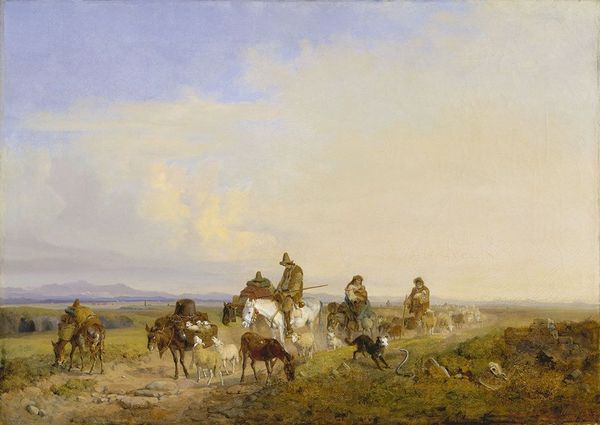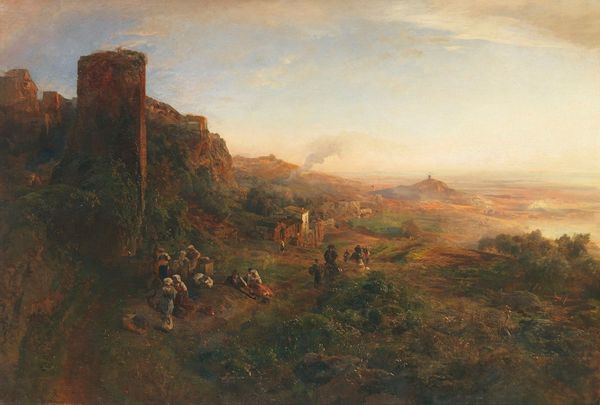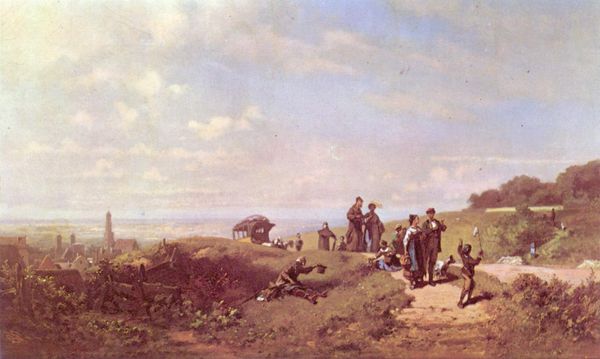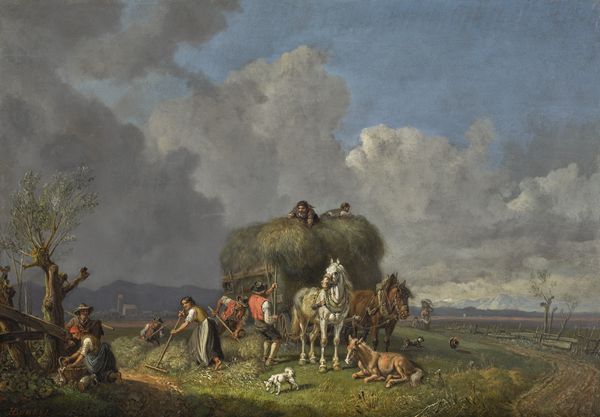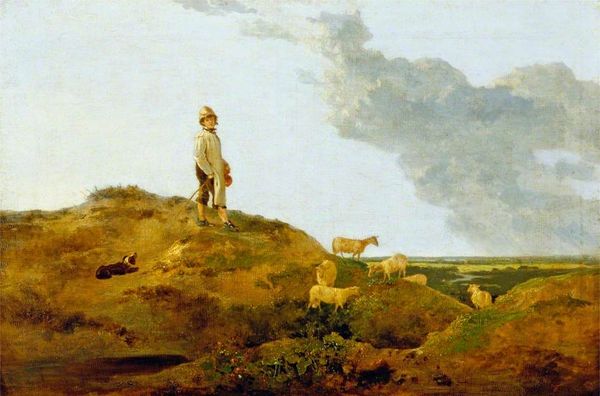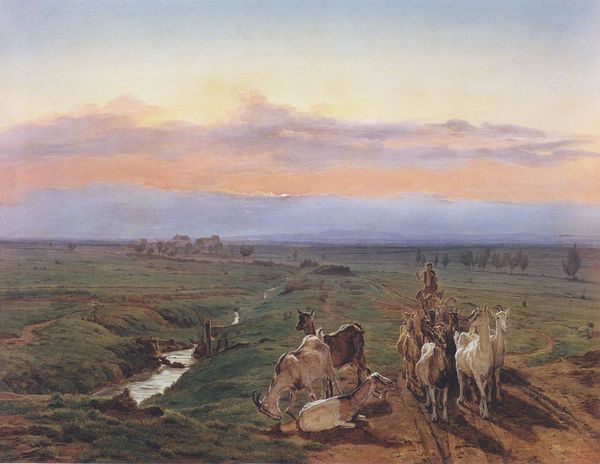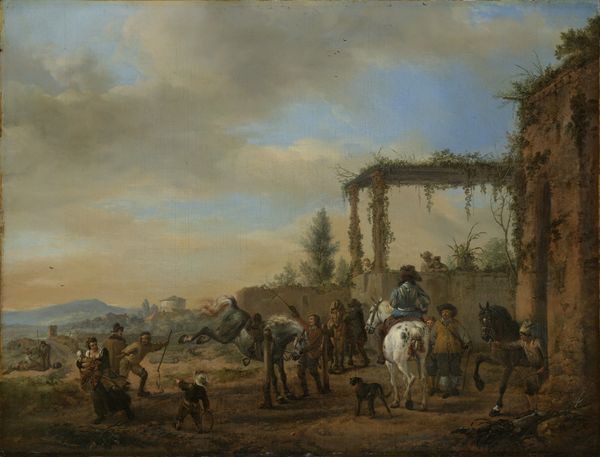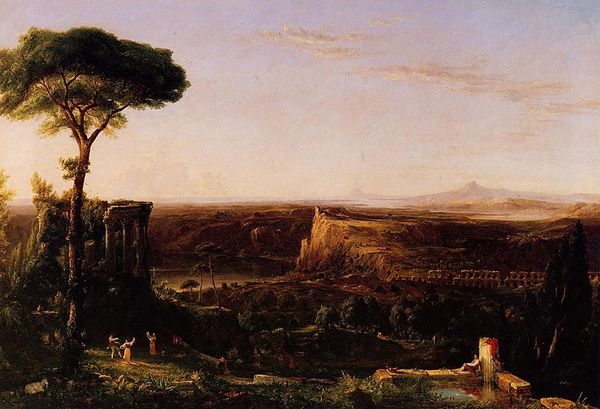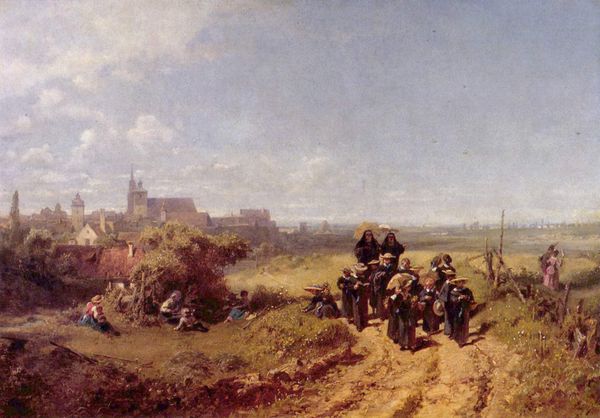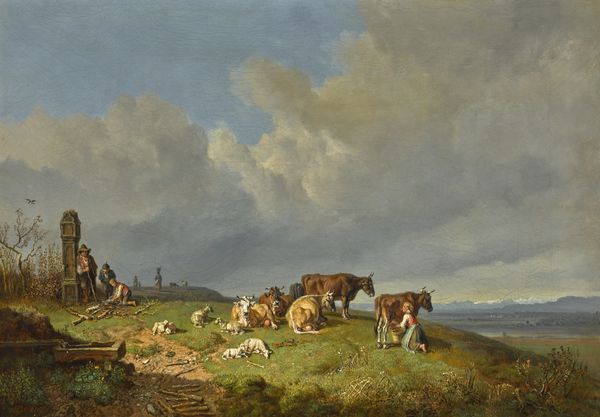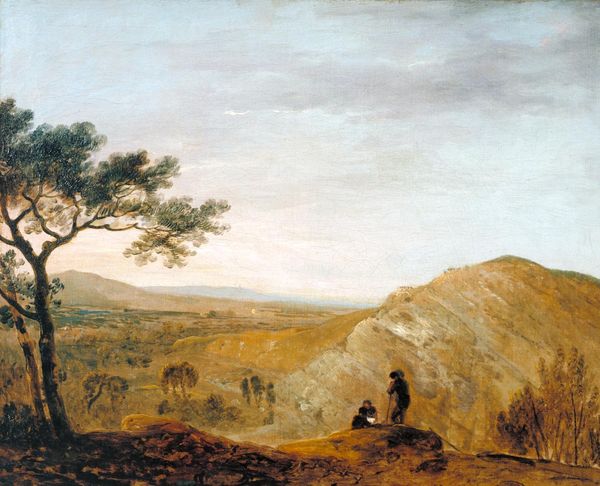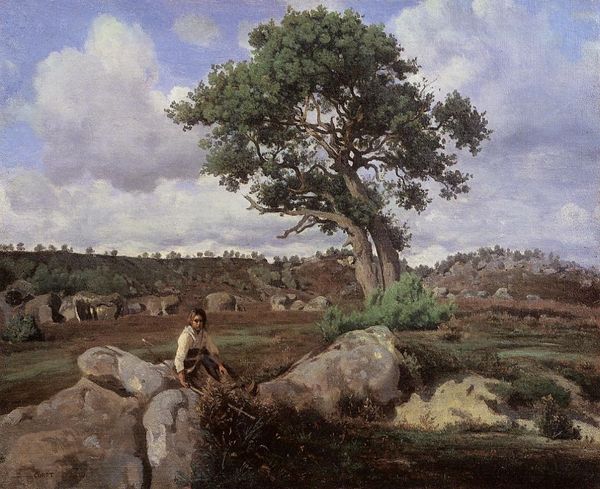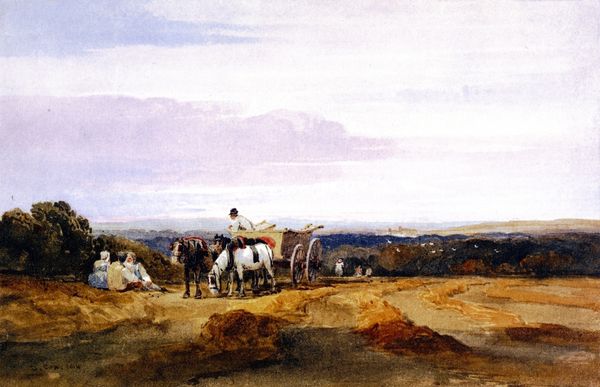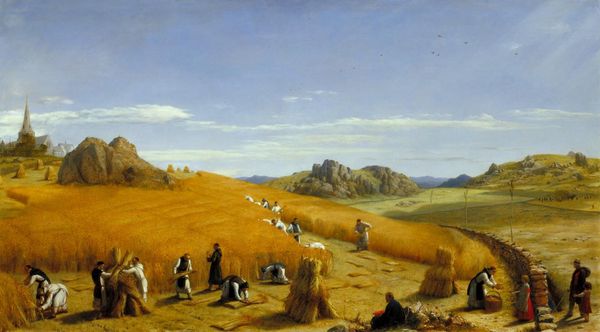
Copyright: Public Domain: Artvee
Editor: This is Anton Romako's "Blick auf Rom vom Monte Mario," created in 1865 using oil paint. It's a sweeping vista of Rome, viewed from a high vantage point, with everyday figures resting in the foreground. I'm struck by the contrast between the vibrant scene of working people and the almost hazy, dreamlike city in the distance. How do you interpret this contrast? Curator: I see this work as a visual negotiation of power and identity in 19th-century Rome. The city, rendered almost as a distant ideal, represents the established order – the Church, the aristocracy – while the workers in the foreground embody a different kind of power, the power of labor, of lived experience. Notice how Romako positions these figures; they are central, almost defiant, within this 'landscape'. How do their clothes, their postures, disrupt typical landscape paintings of this period? Editor: I see what you mean! Their presence is assertive. They’re not merely picturesque additions. It feels…political. Curator: Exactly! It prompts us to question whose Rome is being represented. Is it the Rome of grand monuments and papal authority, or the Rome of its working class, their daily struggles and collective rest? Think about how this subverts the Romantic idealization of landscape. It is still 'romantic', but whose romance is being prioritised? Editor: It's like Romako is giving agency to those normally excluded from the idealized views. Did other artists do the same around that period? Curator: Some certainly did, but what I think is so special in Romako's interpretation is this contrast he highlights using a landscape view, as opposed to Courbet's approach, for example. Editor: That's fascinating. I will think twice next time when admiring landscape paintings in a museum! Curator: Absolutely, questioning the narrative embedded within seemingly simple landscapes allows us to uncover a tapestry of social commentary, of resistance, of voices often marginalized. Editor: Thank you, it's like he's giving a voice to the voiceless through this vista!
Comments
No comments
Be the first to comment and join the conversation on the ultimate creative platform.
